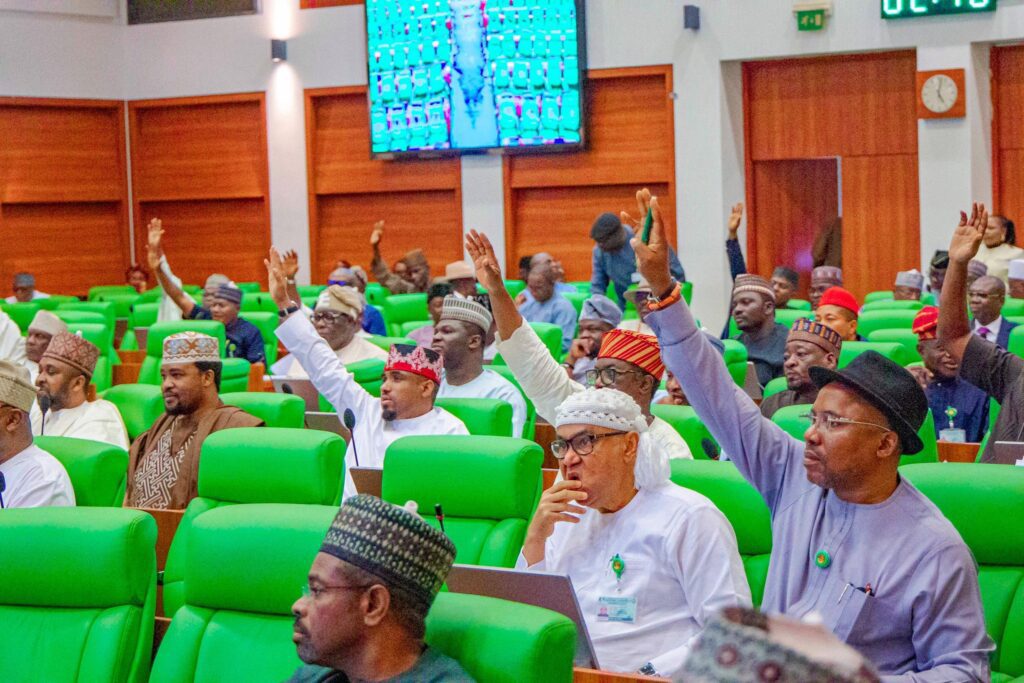The Peoples Democratic Party (PDP), Coalition of United Political Parties (CUPP), and Social Democratic Party (SDP) have strongly criticized the House of Representatives’ bill to impose an age limit of 60 years for candidates contesting for president and governor in Nigeria.
The bill, which passed second reading on Thursday, was sponsored by Ikenga Ugochinyere (representing Ideato North/Ideato South Federal Constituency, Imo State). If enacted, it would bar political figures like President Bola Tinubu, former Vice President Atiku Abubakar, and Labour Party’s Peter Obi from contesting in the 2027 presidential election.
The bill, titled:
“A Bill for an Act to Alter the Constitution of the Federal Republic of Nigeria, 1999 to Review the Requirements that Qualify a Person to be Elected as President and Vice President of the Federal Republic of Nigeria, Governors and Deputy Governors of a State of the Federal Republic of Nigeria and for Related Matters,”
seeks to:
- Set a maximum age of 60 years for presidential and governorship aspirants.
- Mandate a university education as a prerequisite for contesting these offices.
- Amend Section 131 of the Constitution to read: “A person shall be qualified for election to the office of the President if he has been educated up to at least university level and has earned a Bachelor’s degree in his chosen field of study. That he is not more than 60 years old at the time of vying for the office of President.”
- Modify Section 177(d) of the Constitution to reflect the same changes for governorship candidates.
The PDP Deputy National Youth Leader, Timothy Osadolor, slammed the bill as misplaced and unnecessary, arguing that Nigeria’s governance failures are not linked to age but rather corruption, incompetence, and lack of patriotism.
“This set of lawmakers is the most unserious assembly we have ever had in the history of this country. The problem Nigeria faces is not about age. It is about competence, capacity, and corruption. Instead of tackling these fundamental issues, they are focusing on trivial matters,” Osadolor said.
He cited examples of global leaders over 60, including those in India, Singapore, and the United States, emphasizing that age does not determine leadership effectiveness.
“Even in America, their president is nearly 80. In Singapore, leaders over 60 have transformed their country. Age comes with wisdom; it should not be a barrier. The lawmakers should focus on more pressing national issues rather than embarrassing themselves with this bill,” he added.
CUPP: “Leadership Failure Is About Corruption, Not Age”
The National Publicity Secretary of CUPP, Mark Adebayo, echoed the PDP’s stance, arguing that corruption, incompetence, and opportunism—not age—are Nigeria’s real governance problems.
“Even if corrupt politicians were in their 30s, they would still be corrupt. It is not about age but about character, competence, and patriotism,” he said.
Adebayo cited the example of Singapore’s founding leader, Lee Kuan Yew, and U.S. President Joe Biden, both of whom led effectively beyond the age of 60.
“Biden is leading the U.S. at nearly 80. Lee Kuan Yew transformed Singapore when he was over 60. Leadership is about vision, discipline, and the ability to govern—not how old you are,” he stressed.
SDP: “Age Matters, But Leadership Requires Experience and Competence”
The National Publicity Secretary of the SDP, Rufus Aiyenigba, provided a more balanced perspective, acknowledging that while age plays a role in governance, it is not the sole determinant of leadership success.
“Governance is not an entry-level job. Leadership requires experience, competence, and values. We’ve had young leaders in both the military and civilian governments, and some performed well while others failed,” Aiyenigba noted.
He suggested that rather than focusing on age restrictions, lawmakers should introduce mandatory live debates for presidential and governorship candidates to assess their vision, intelligence, and leadership capacity.
“Instead of an arbitrary age limit, why don’t we ensure that presidential candidates participate in compulsory live debates? That way, Nigerians can evaluate their ability to lead based on competence rather than age,” he proposed.
Despite the backlash from opposition parties, the bill remains in the legislative pipeline. For it to become law, it must:
- Pass a third reading in the House of Representatives.
- Be approved by the Senate.
- Receive presidential assent.
- Secure ratification from at least two-thirds of Nigeria’s state assemblies.
As the debate rages on, the question remains: Is setting an age limit a solution to Nigeria’s governance challenges, or is it a distraction from deeper structural issues like corruption and incompetence?
Stay tuned to 9am News Nigeria for more Breaking News, Business News, Sports updates And Entertainment Gists.
















